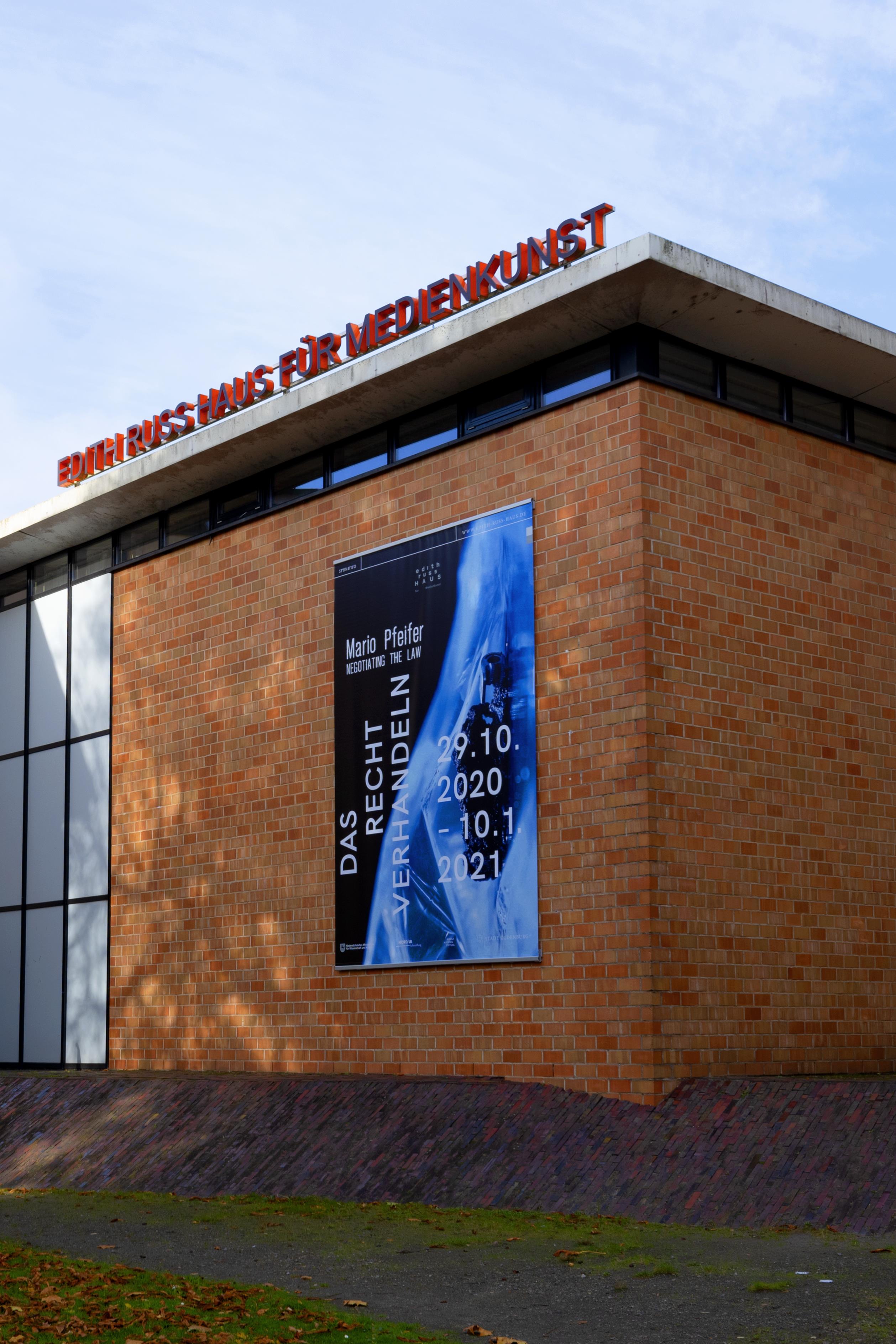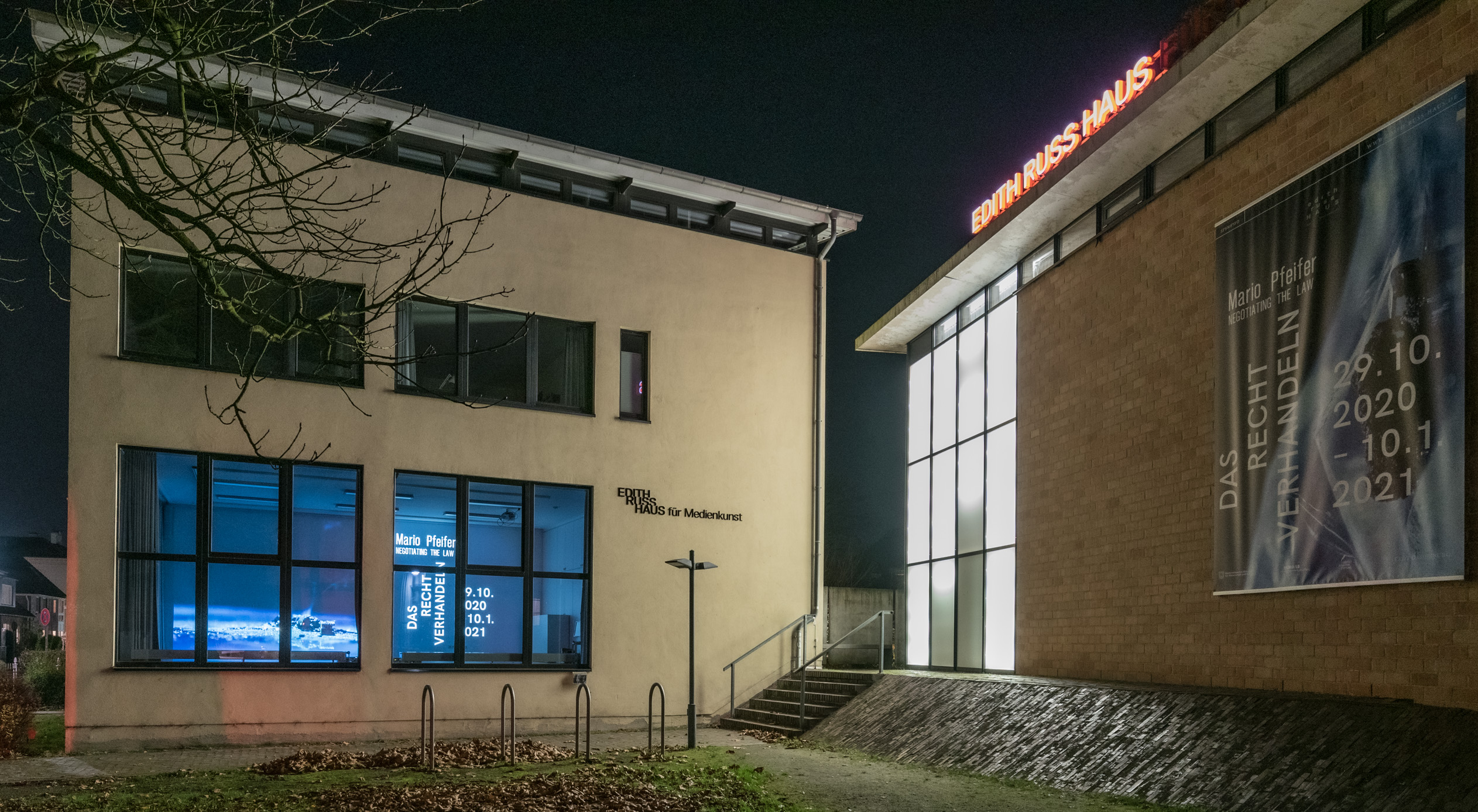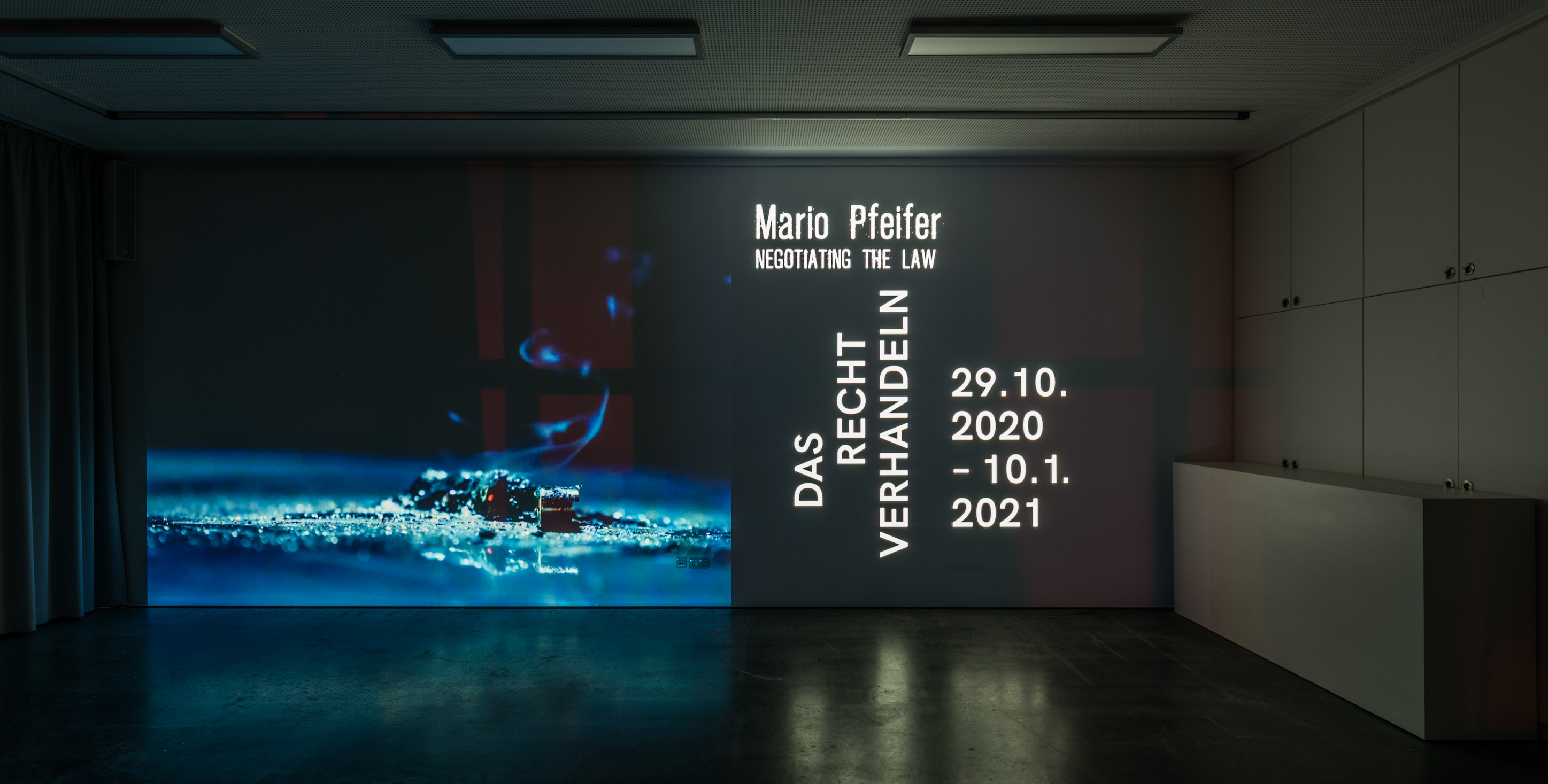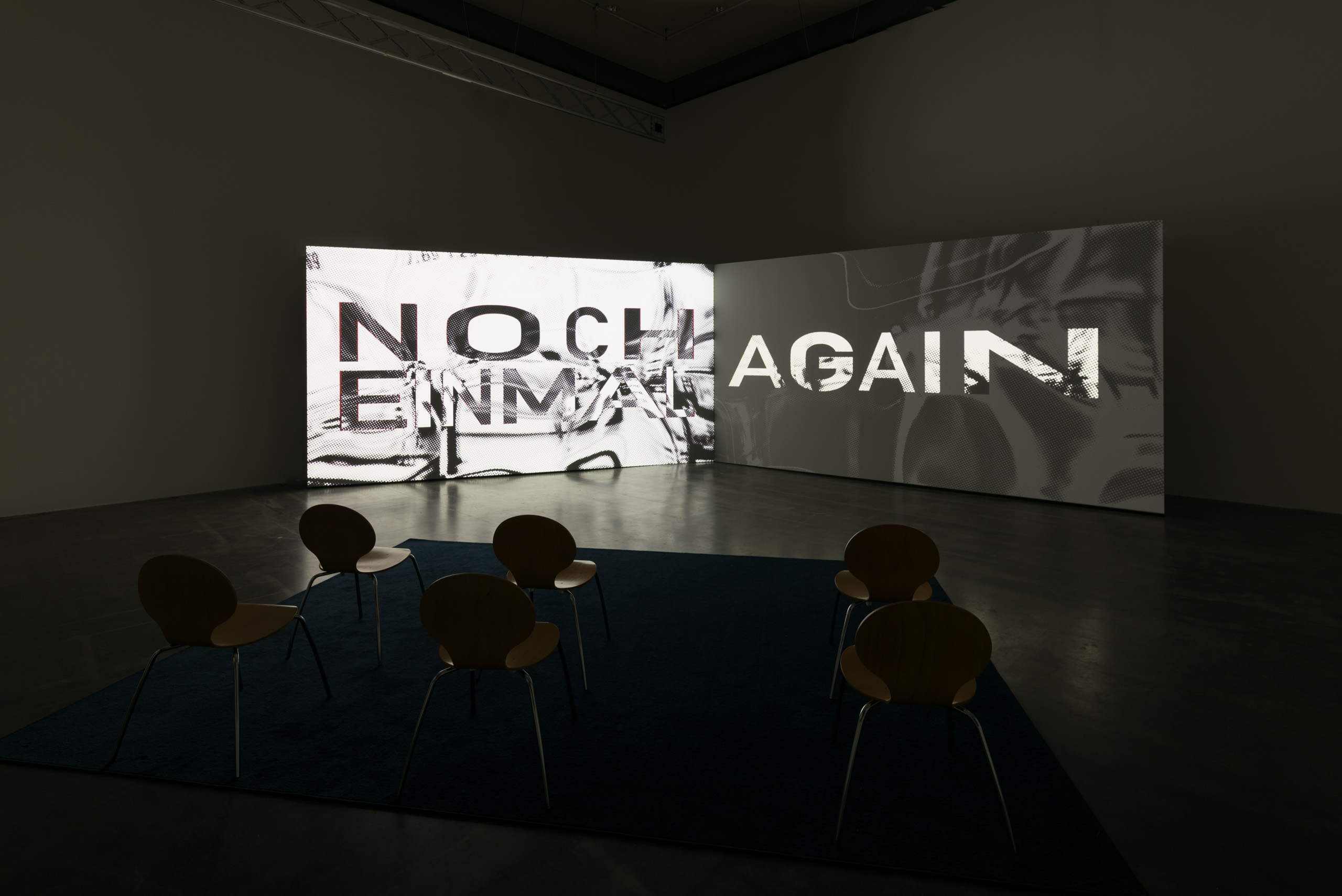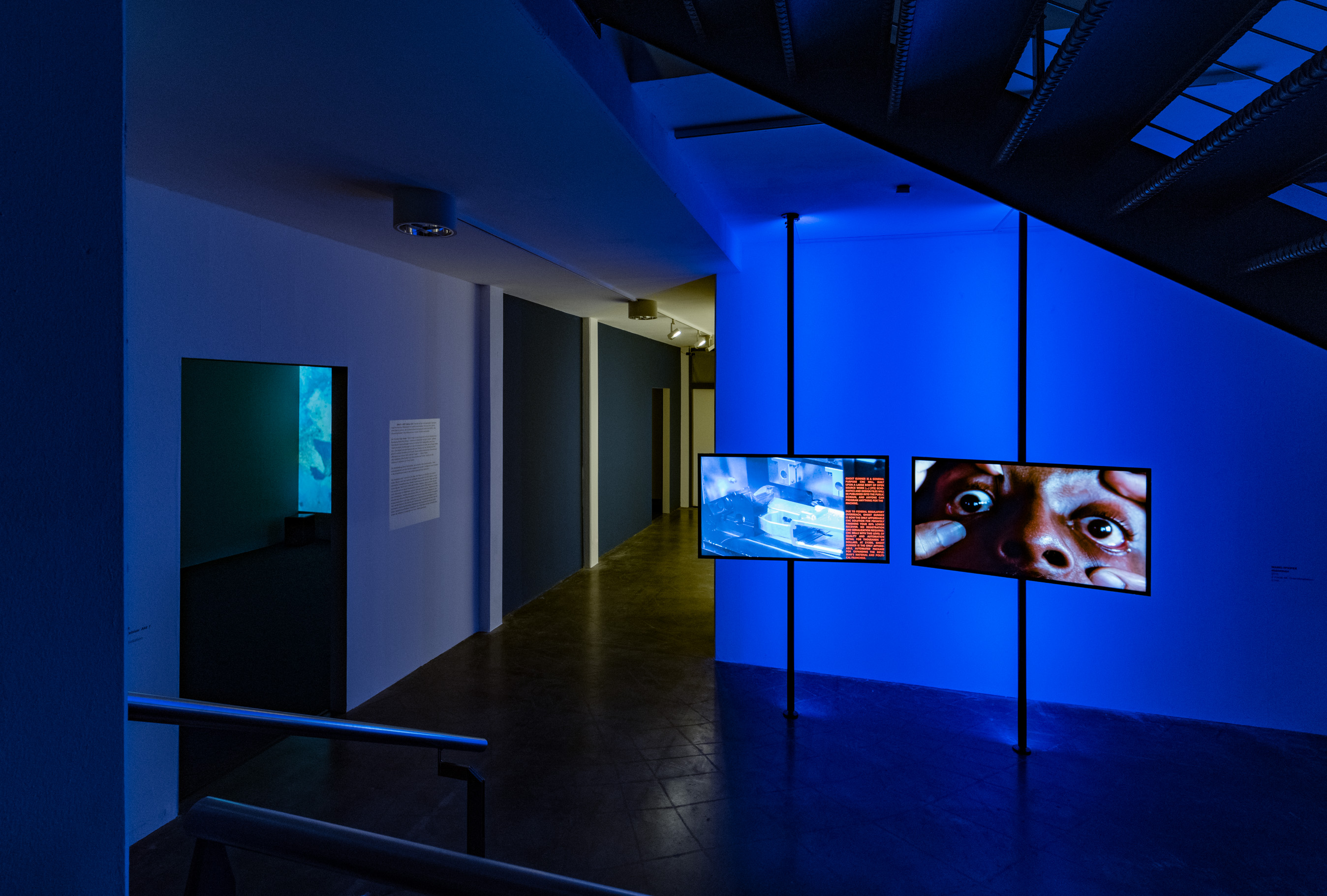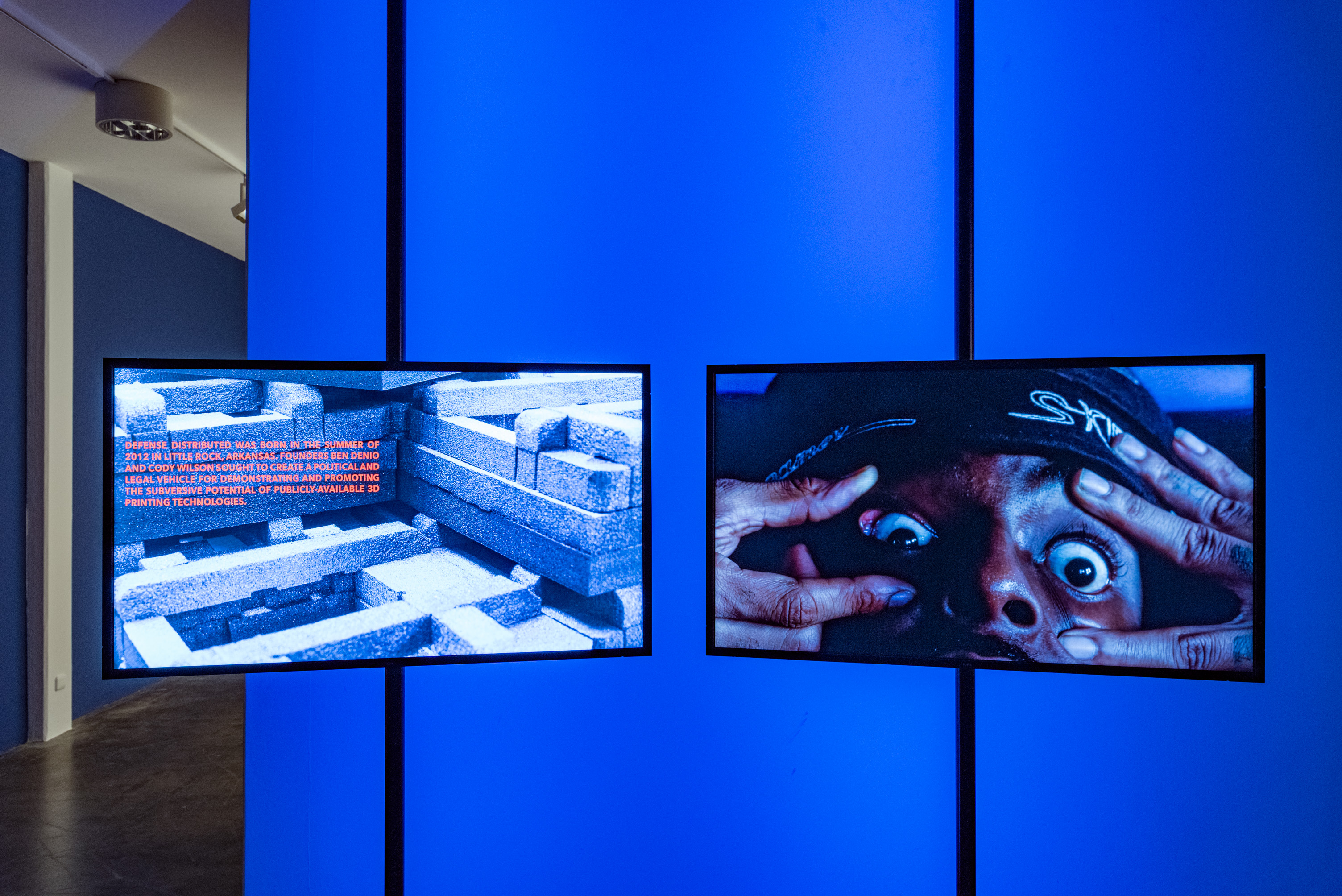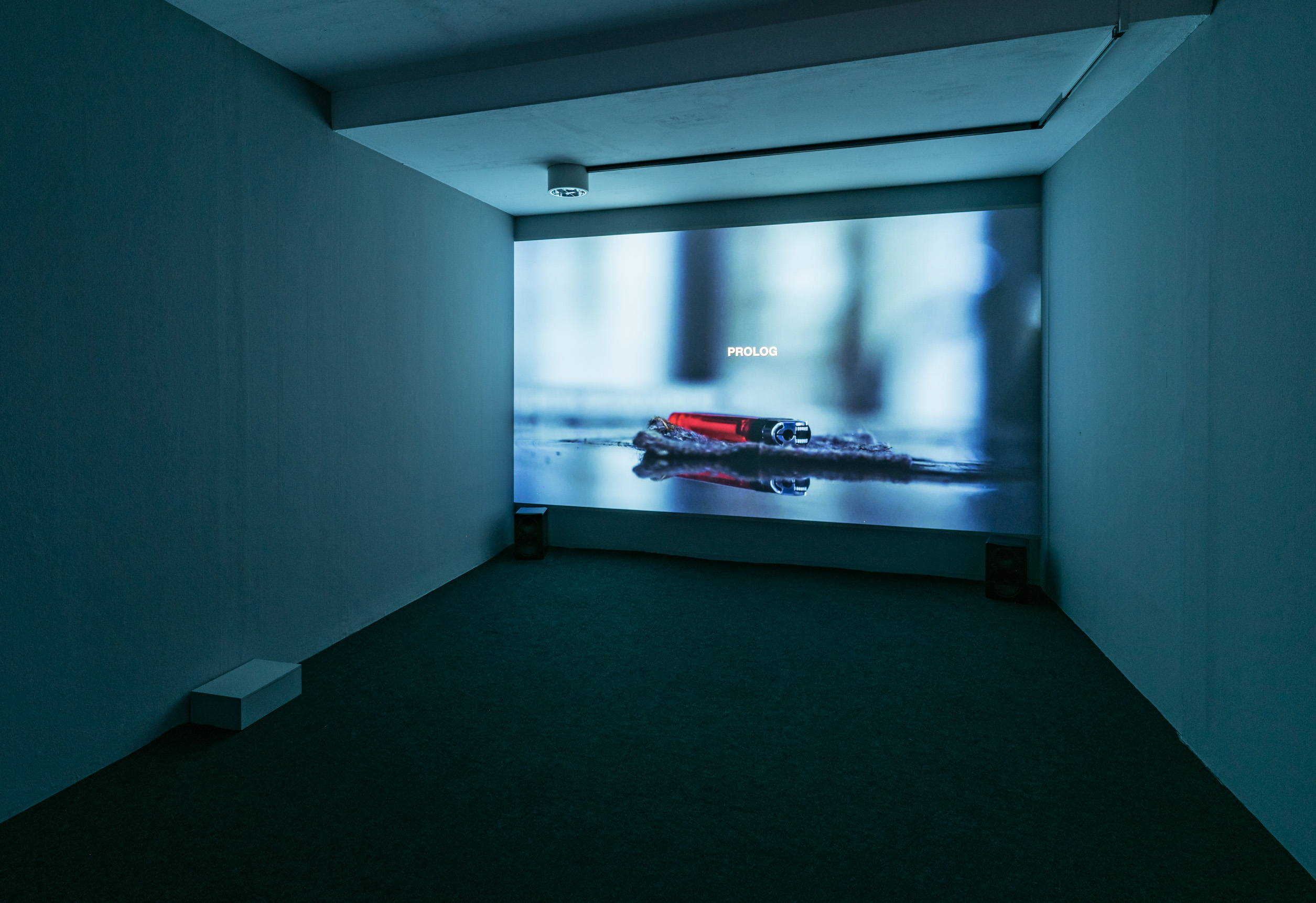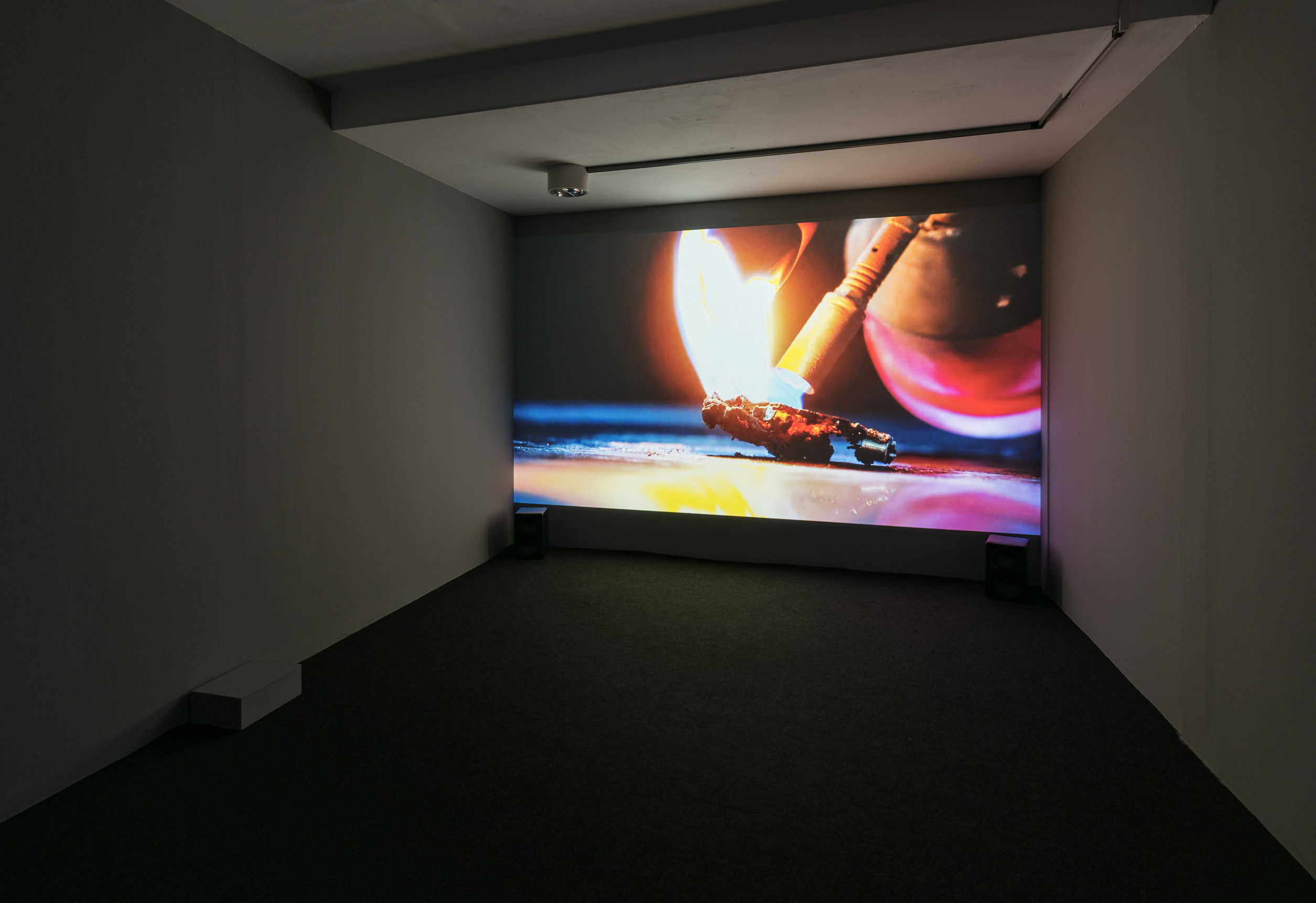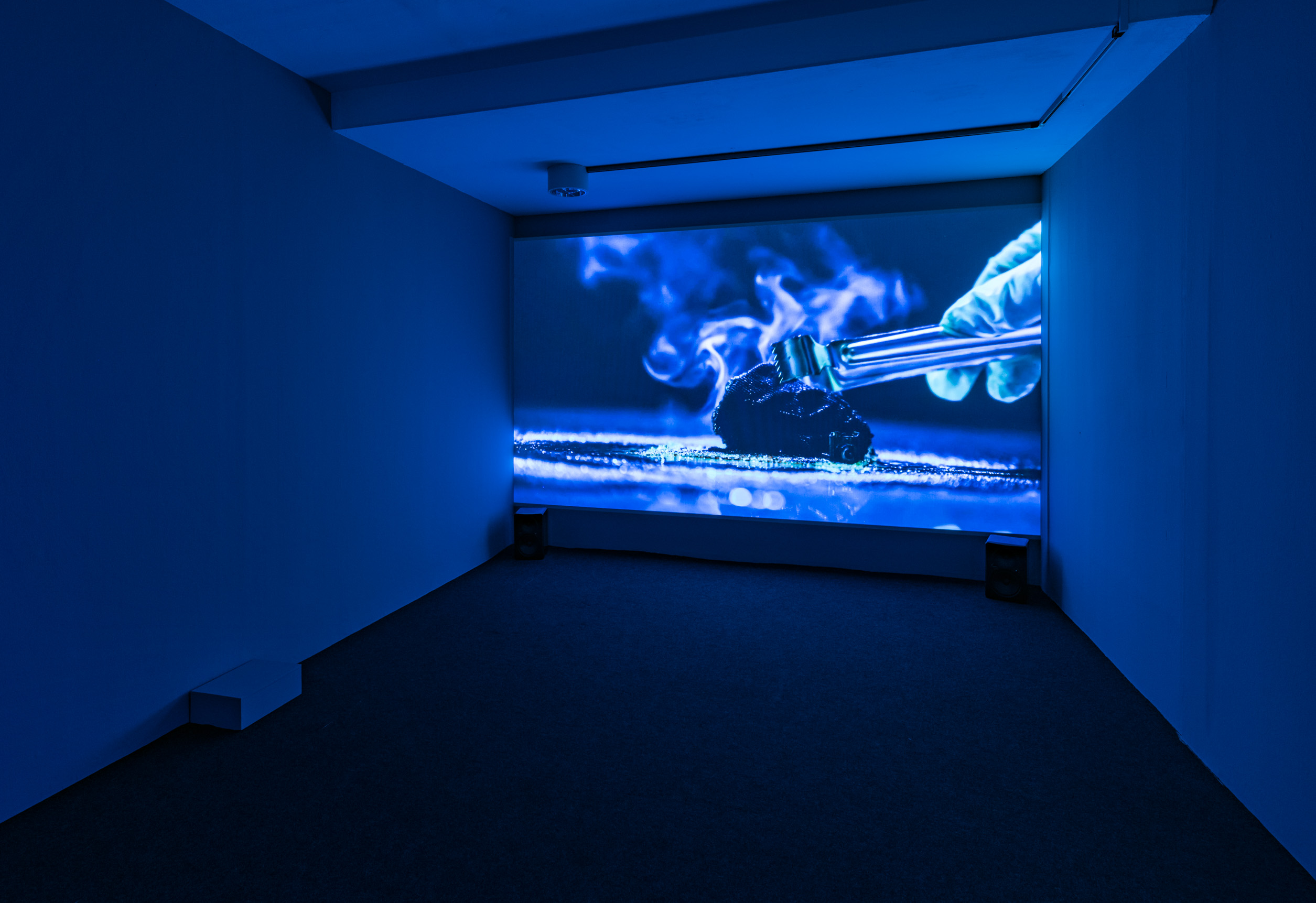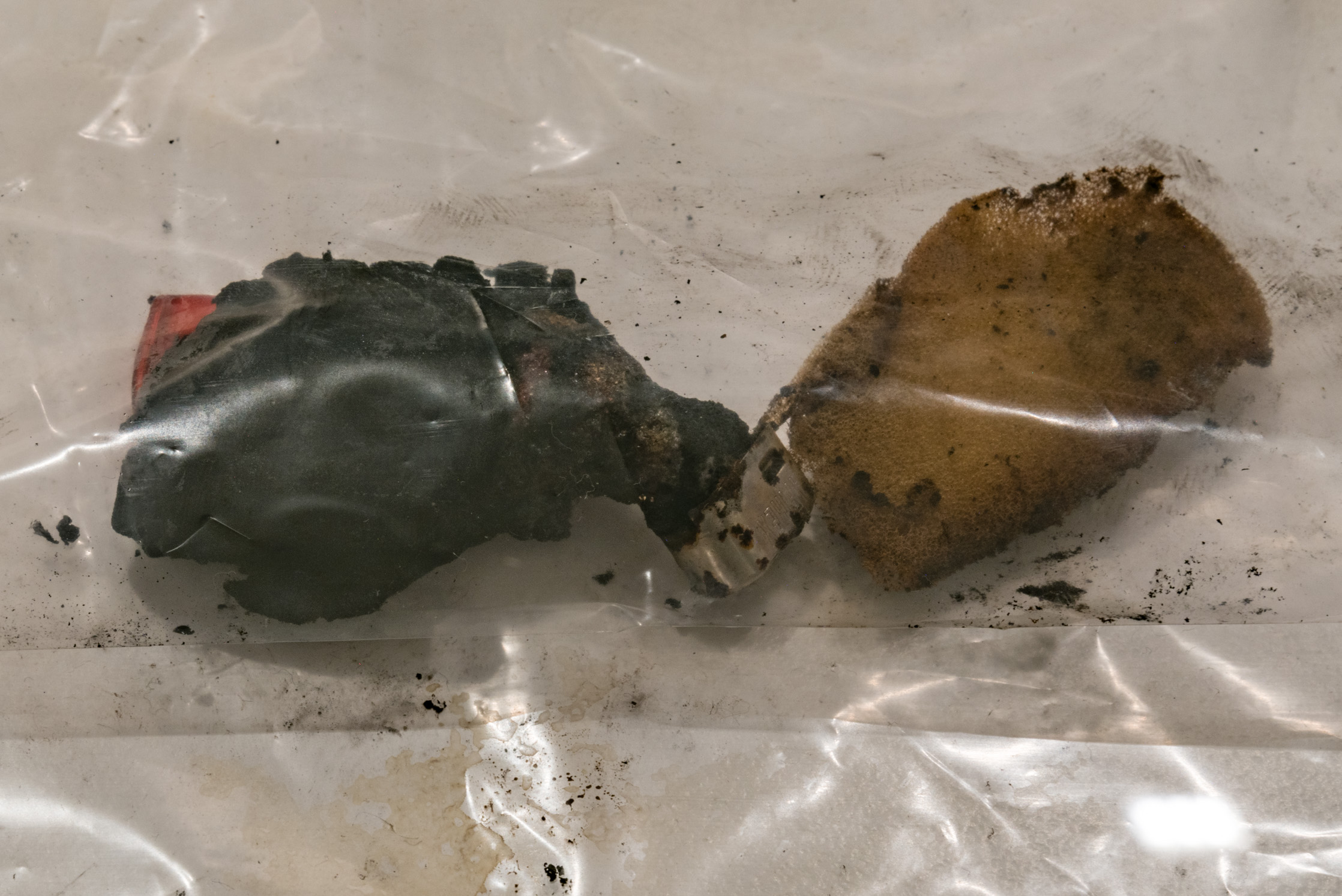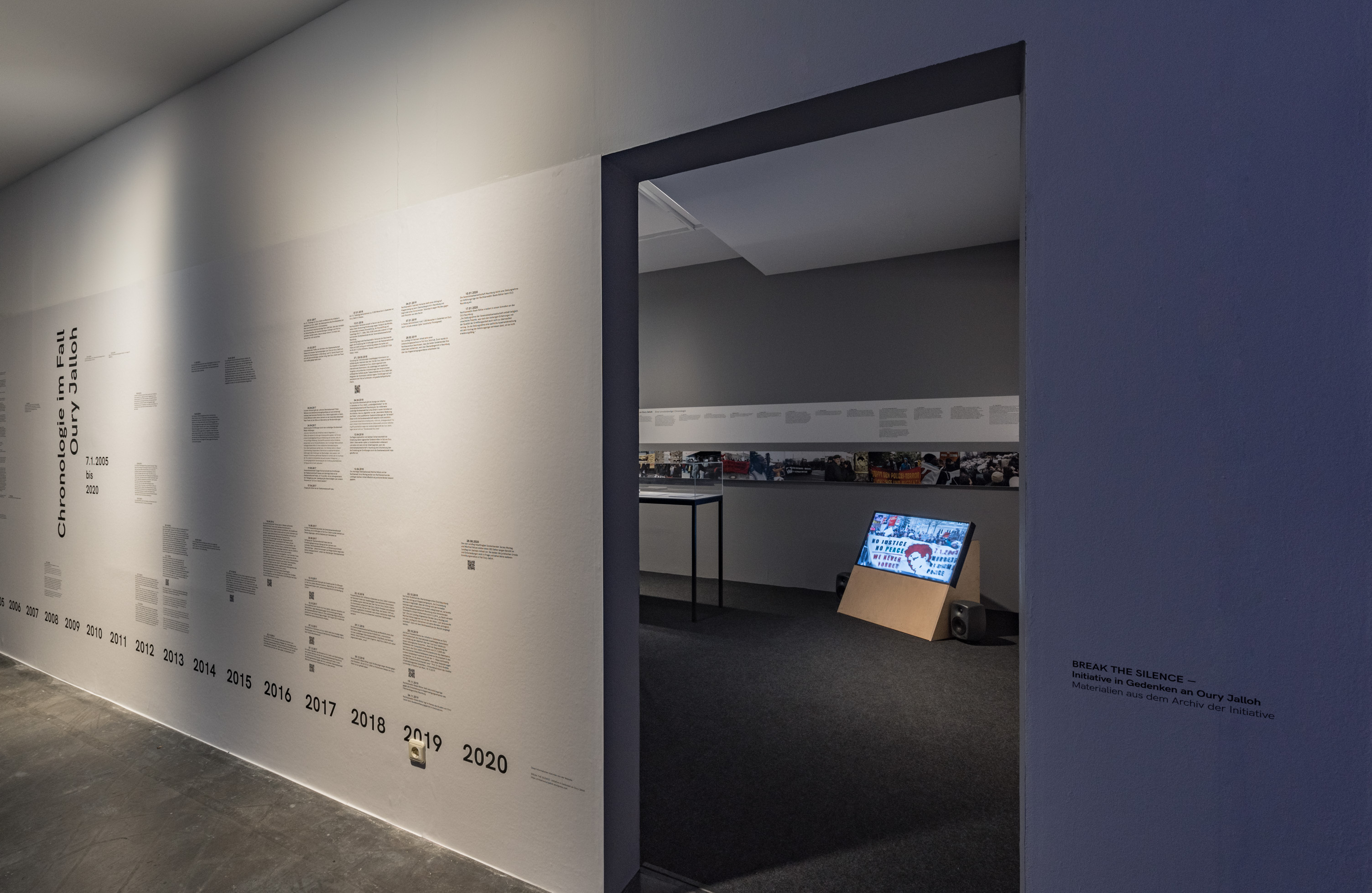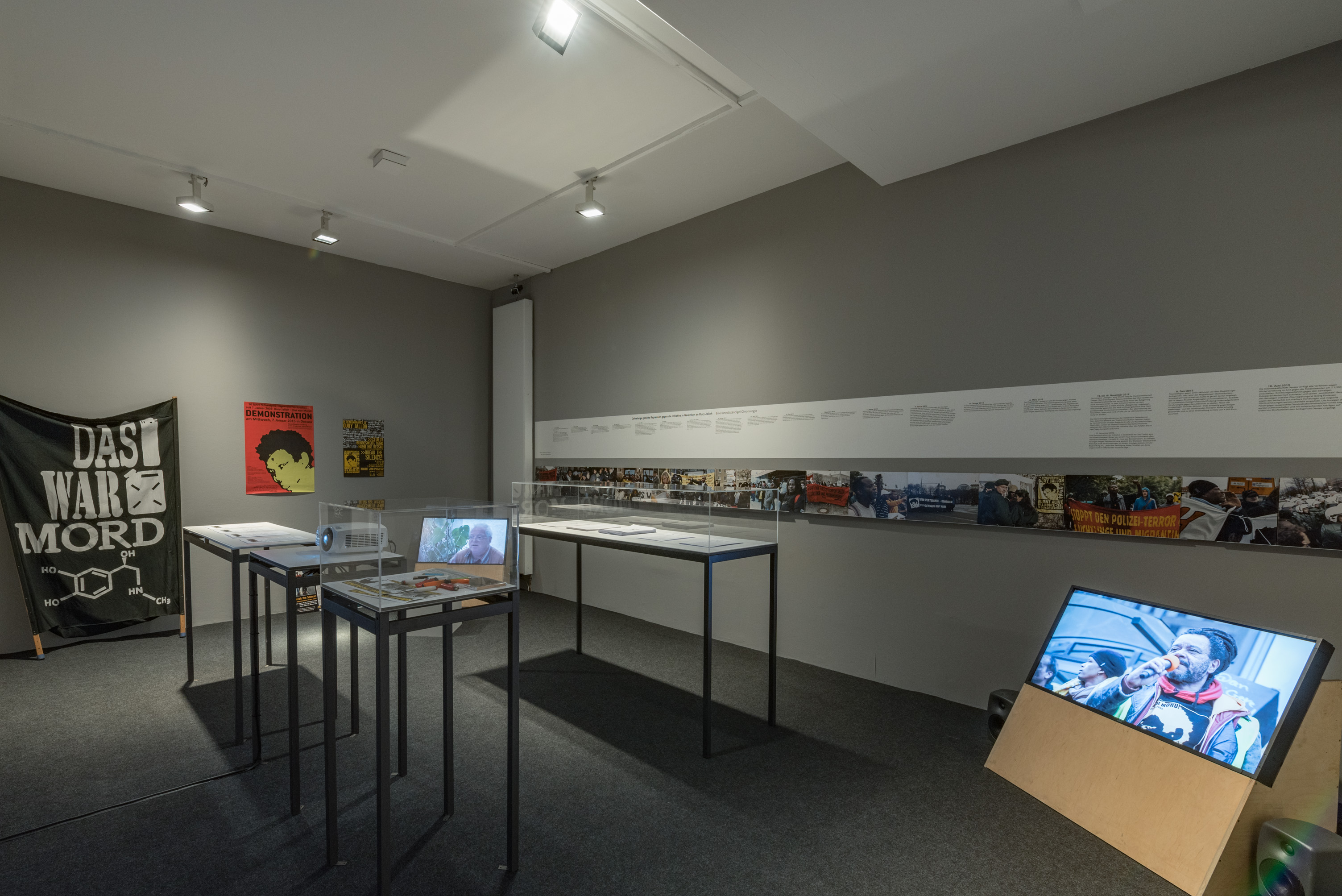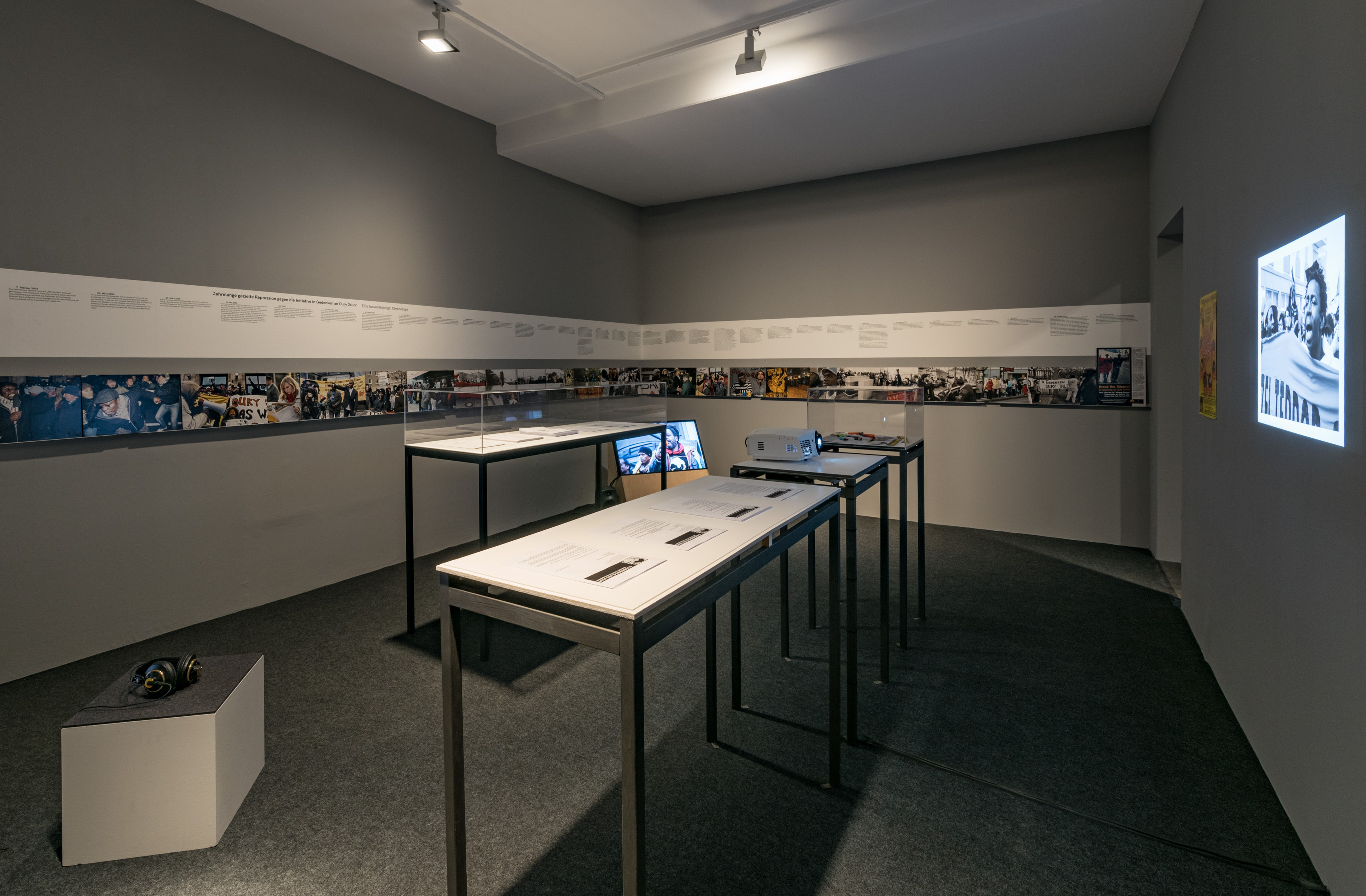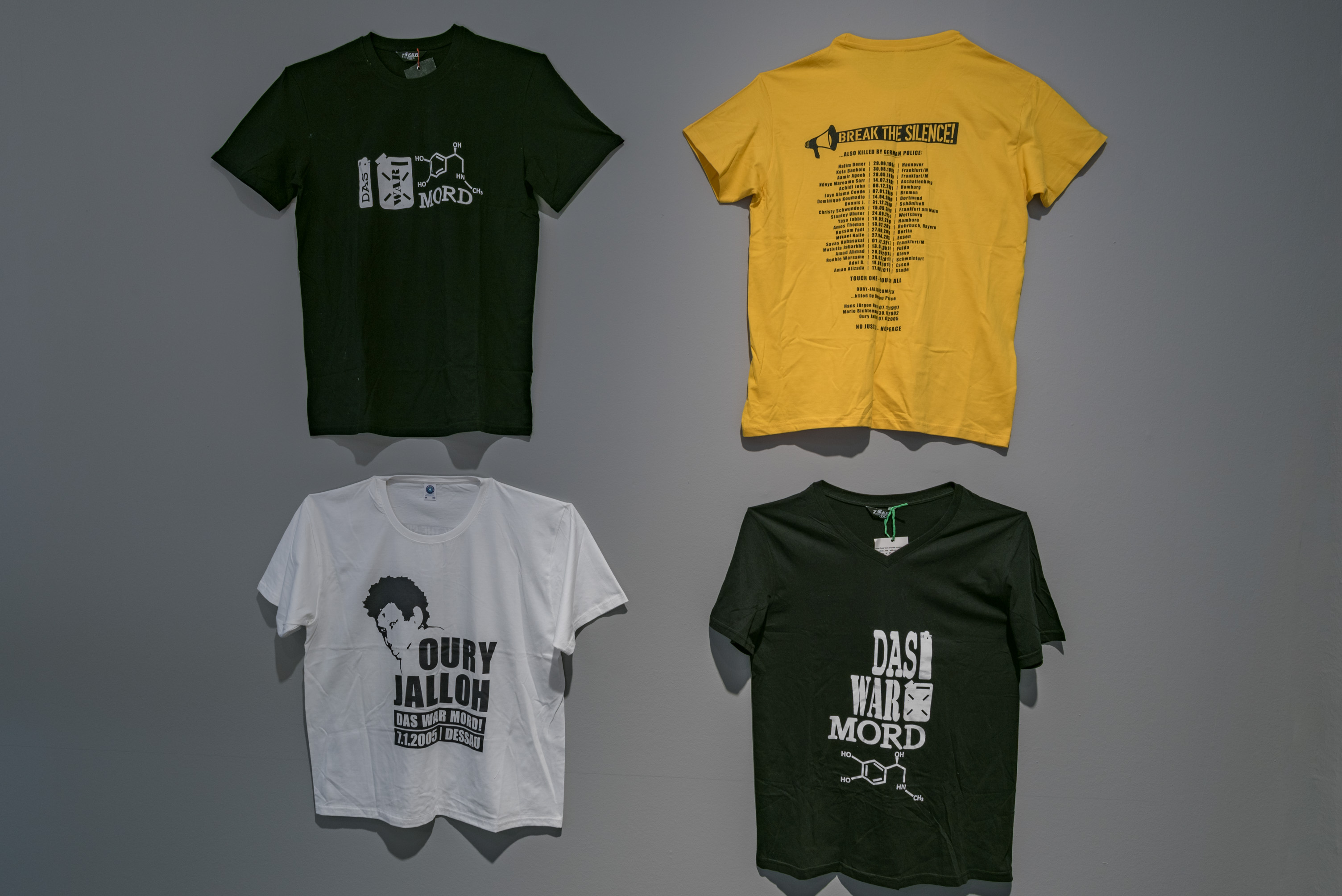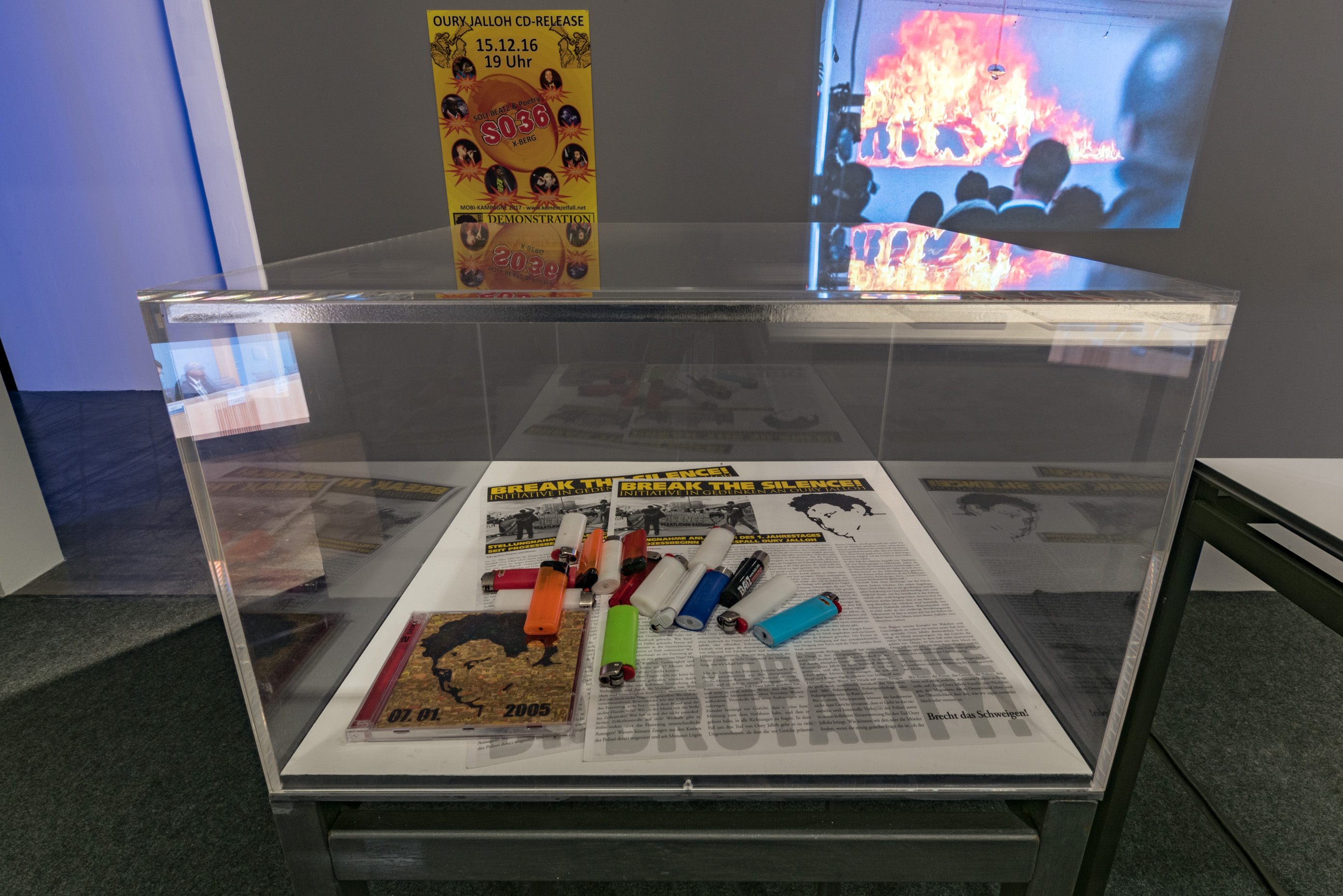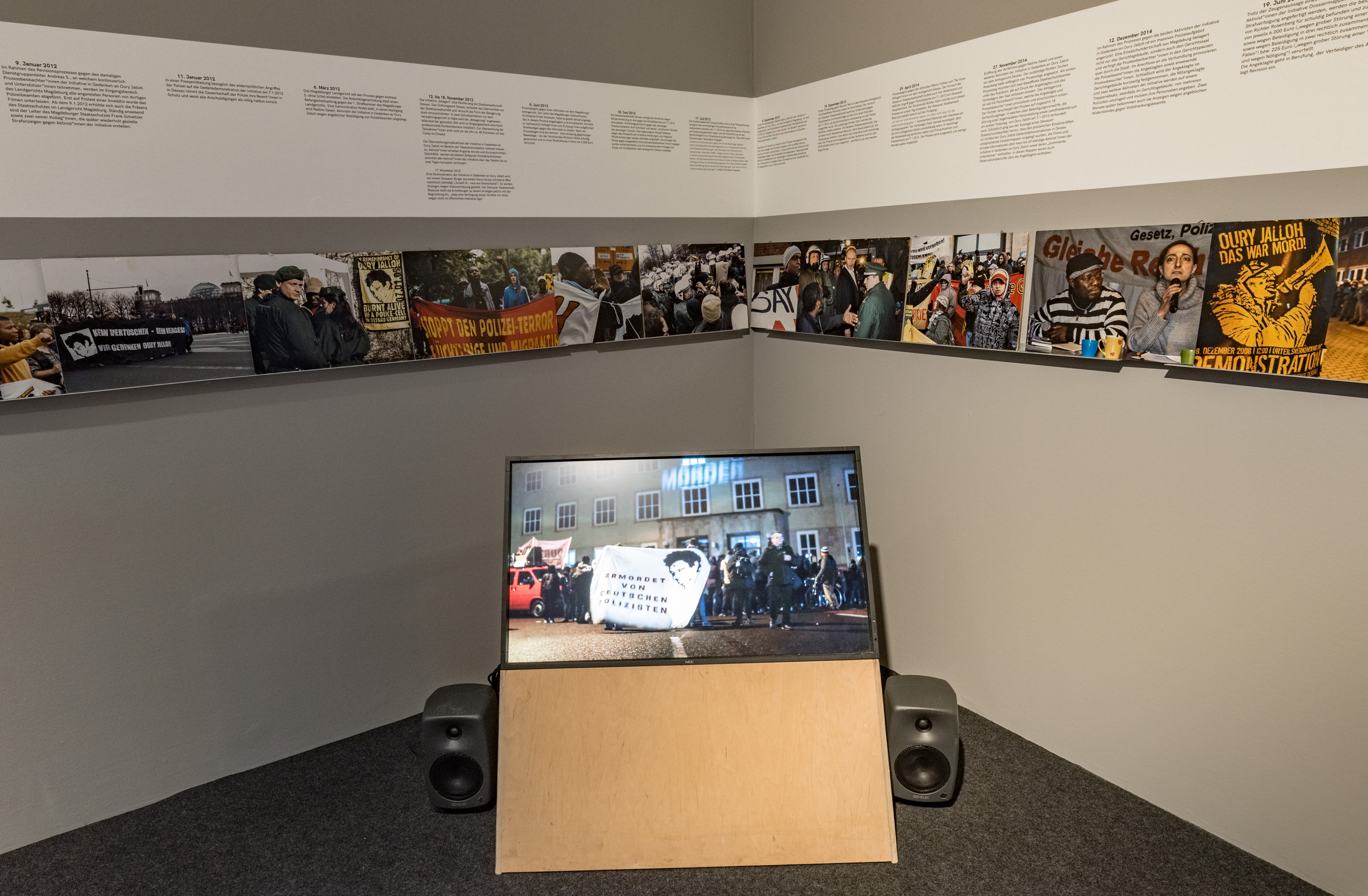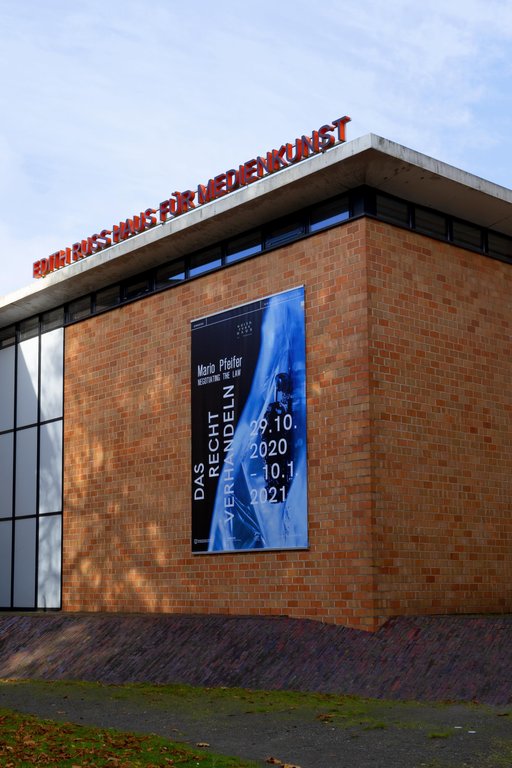Negotiating the Law
Zelle 5 – 800° Celsius: Act 1 is a multimedia installation that stands at the center of Negotiating the Law, a solo presentation of German video artist and filmmaker Mario Pfeifer. Through the artistic reworking of forensic materials and investigative strategies related to the deeply troubling case of the death of Oury Jalloh, a Sierra Leonean asylum seeker in Germany, the work aims to spark discussion about the coexistence of visual evidences, racism and institutional violence, and the importance of civil activism. The artist has closely collaborated with activists from Break the Silence, an initiative in remembrance of Jalloh that continues the investigation into his 2005 case—which remains one of Germany’s largest police controversies in relation to accusations of institutional racism.
On January 7, 2005, Oury Jalloh burned to death in detention cell 5 of the Dessau-Roßlau police station, and almost sixteen years later the case is still widely debated both juridically and in the media. Pfeifer’s complex Zelle 5 installation not only provides insight into the production of the visual evidence used to build the case but also allows protagonists from politics, the judicial system, and civil right movements to speak up and introduce their evidence, in a space entirely dedicated to representing their findings. This gesture of representation encourages both the participants and the audience to take an active role in judging pieces of evidence and court protocols, like fire reports and to delve into the image-making processes used in law enforcement. Pfeifer’s work further opens up space for debate on social controversies and the complexities of how law is constructed, executed, and influenced.
Populated by a cast of everyday characters, the exhibition space comes to evoke the scene of the incident, where both documentation of evidence archived and a re-enactment of the creation of visual evidence are presented. Act 1 is entirely dedicated to one object: an ordinary disposable lighter, which is the central piece of evidence in Jalloh’s case. It appeared three days after the crime scene was secured, with investigators claiming it had previously been overlooked. No DNA traces of Jalloh or materials secured in the cell were found on the claimed evidence.
The artist has also invited Break the Silence—In Remembrance of Oury Jalloh to present their activist work, which demands justice for Jalloh and the prosecution of those responsible for the events of January 7, 2005.
Alongside Zelle 5, the Negotiating the Law exhibition includes two earlier works by Pfeifer that reflect on current social discussions on institutional racism and the status and treatment of refugees in (East) Germany.
Again/Noch Einmal (2018) revisits a 2016 incident near Dresden, in which after an argument with a supermarket cashier, Shabaz al-Aziz, a Kurdish Iraqui refugee, was attacked and tied to a tree by four local men. Before the trial of these men, al-Aziz was found dead in a forest. Pfeifer reconstructed the viral YouTube footage of the attack using professional actors and invited citizens of different nationalities—most of them immigrants to Germany—act as jurors, raising question around our perception of reality, media manipulation, justice and democracy.
#blacktivist (2015) is a manifesto against police brutality, selective law enforcement, and the valorization of self-defense. The work, which Pfeifer conceived together with Brooklyn rap group the Flatbush ZOMBiES, puts sequences of police violence—captured by surveillance and body cameras—into the aesthetics of a conventional music video. This is combined with found internet footage glorifying weapons and demonstrating attacks and counterattacks, as well as documentation of a gun-manufacturing workshop in Austin, Texas, that uses at-home 3D printing technology, thereby challenging laws around weapons distribution and ownership in the US.
Pfeifer’s new monograph, If you end up with the story you started with, then you’re not listening along the way (ed. Gaëtane Verna, with contributions by Stan Douglas, Georg Imdahl and Nomaduma Rosa Masilela, Mousse Publishing, 2019), will be launched during the exhibition with a conversation between the artist and contributing writers.
Mario Pfeifer was the 2019 recipient of the Media Art Grant from the Foundation of Lower Saxony at the Edith-Russ-Haus, Oldenburg. −
Curated by Edit Molnár & Marcel Schwierin.
The info booklet on the exhibition with brief descriptions of all exhibited works can be downloaded free of charge as a PDF. The use is exclusively for private purposes, other uses must be coordinated with the Edith Russ House. Download here.
 YouTube:
YouTube:
Activate service and agree with the data transfer to YouTube.Informations to the privacy policy and the release revocation you will find here: Datenschutzerklärung YouTube:
YouTube:
Activate service and agree with the data transfer to YouTube.Informations to the privacy policy and the release revocation you will find here: Datenschutzerklärung YouTube:
YouTube:
Activate service and agree with the data transfer to YouTube.Informations to the privacy policy and the release revocation you will find here: Datenschutzerklärung

